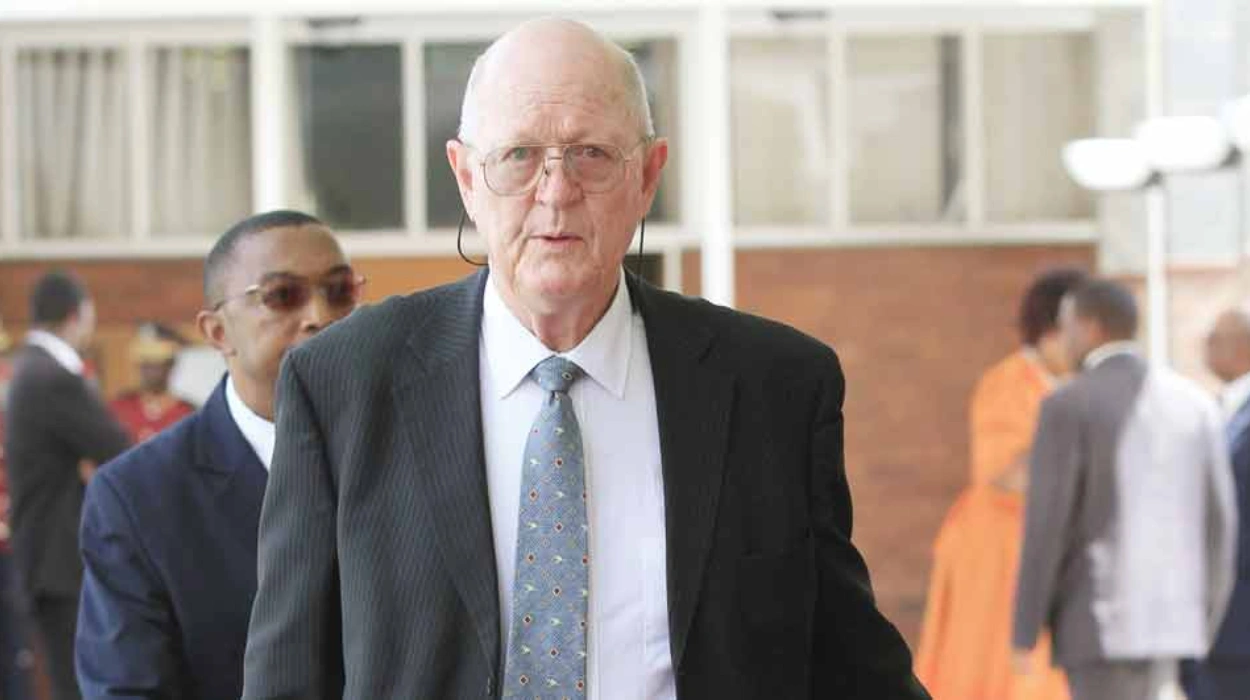Ian Kirby, senior judge and former attorney general in Botswana, appears as a shareholder in multiple offshore companies, spotlighting issues of wealth concealment, offshore finance, and public accountability in powerful positions.
Understanding Offshore Finance and Tax Havens
Offshore finance involves using foreign jurisdictions, typically tax havens like the British Virgin Islands (BVI), to register companies, foundations, or trusts. These entities benefit from low or zero taxation, minimal transparency, and regulatory leniency, enabling individuals or corporations to reduce tax liabilities, obscure ownership, and protect assets from legal scrutiny. This system facilitates global wealth mobility but also creates challenges for transparency, anti-corruption, and tax justice worldwide.
Ian Kirby’s Offshore Financial Involvement: The Facts
Ian Stuart Kirby, a respected legal authority in Botswana, features in the International Consortium of Investigative Journalists’ (ICIJ) Offshore Leaks database as a shareholder in seven BVI-registered companies. Documents reveal that Kirby held shares in these entities while serving as Botswana’s attorney general, a role tied to high public trust and governance oversight. At least three of these offshore companies owned properties, including commercial real estate, mainly in the UK.
Kirby explained that these companies were special purpose vehicles, set up in partnership ventures for property acquisition and development, aimed at protecting savings and seeking returns above inflation. He and his wife reportedly invested modest amounts and acknowledged they suffered losses due to the global financial recession. Despite this, they still retain interests in two companies, hoping for investment recovery or limited profits.
Critical Analysis of Offshore Wealth in Public Office
Kirby’s involvement in offshore firms raises deep questions about the conflict between public accountability and private wealth secrecy. As a senior judge and former deputy attorney general in Botswana, Kirby held positions critical to upholding the rule of law, anti-corruption, and economic governance. He also led commissions that resulted in Botswana’s Directorate on Corruption and Economic Crime, emphasizing his public role in combating financial wrongdoing.
Yet, his offshore holdings exemplify how officials—irrespective of jurisdiction—may benefit from opaque financial arrangements that shield assets from public scrutiny. According to ICIJ data, offshore secrecy enables the concealment of billions globally; 80% of investigated offshore companies lack transparent beneficial ownership information. This opacity undermines judicial integrity, especially when legal elites participate in offshore economies while promoting financial transparency domestically.
Global Statistics: The Scope of Offshore Secrecy
- The ICIJ’s Offshore Leaks database documents over 800,000 offshore entities linked to tens of thousands of “power players,” including politicians, corporate executives, and public officials.
- The IMF estimates that over $8 trillion in assets are held offshore globally, contributing to significant tax revenue losses for governments.
- The World Bank and FATF (Financial Action Task Force) warn that offshore havens facilitate money laundering, tax evasion, and illicit financial flows harming developing economies.
- Blacklisting countries on offshore finance risks can impact foreign aid, investment, and international cooperation.
Kirby’s case fits into these systemic global issues where offshore vehicles operate as double-edged swords perceived as legal instruments for legitimate investment but exploited to obscure wealth and avoid accountability.
The Ethical and Governance Dimensions
Botswana is generally praised for robust governance and low levels of corruption in Africa. However, Kirby’s offshore investments stir debate about ethical expectations from senior judicial officials. Transparency International stresses that public officials should disclose financial interests comprehensively to preclude conflicts of interest or misuse of office.
Kirby’s stated rationale as a strategic financial investment with losses during a global downturn does not inherently imply illegal activity. Nonetheless, offshore structures often lack full transparency, and such investments by judiciary members can diminish public trust. When a senior judge controls companies that hold foreign real estate through opaque channels, it fuels public suspicion, especially in developing countries facing fiscal and governance challenges.
Reflections on Ian Kirby in the Broader Financial Secrecy Landscape
Ian Kirby’s offshore connections highlight the paradox faced globally: elite professionals who enforce laws and anti-corruption frameworks simultaneously participating in financial networks designed to obscure wealth. This paradox reflects the broader systemic flaw in international financial regulation, where national legal frameworks and international transparency efforts struggle to keep pace with increasingly complex offshore arrangements.
The Kirby case is emblematic of:
- The blurred lines between legal financial planning and ethical dilemmas in public service.
- The resilience of offshore secrecy mechanisms despite regulatory reforms by international bodies like the OECD and G20.
- The urgent need for stronger beneficial ownership disclosure, international cooperation, and accountability measures, especially for influential public figures.
What Kirby’s Case Reveals About Offshore Power Dynamics
Ian Kirby’s presence in offshore databases is not an isolated anomaly but a window into a global system of wealth concealment that often protects the powerful at the expense of transparency and equity. His dual identity as a custodian of Botswana’s legal integrity and a beneficiary of offshore finance symbolizes a persistent challenge in global governance: ensuring the separation of personal financial interests from public duty.Effective reform demands more than selective exposure; it requires systemic change addressing the root causes allowing offshore secrecy, including weaker regulatory environments, banking secrecy laws, and political resistance. Kirby’s story, thus, forms part of the much-needed public discourse on balancing legitimate financial privacy with the imperative for public accountability, especially among those entrusted with the law.


